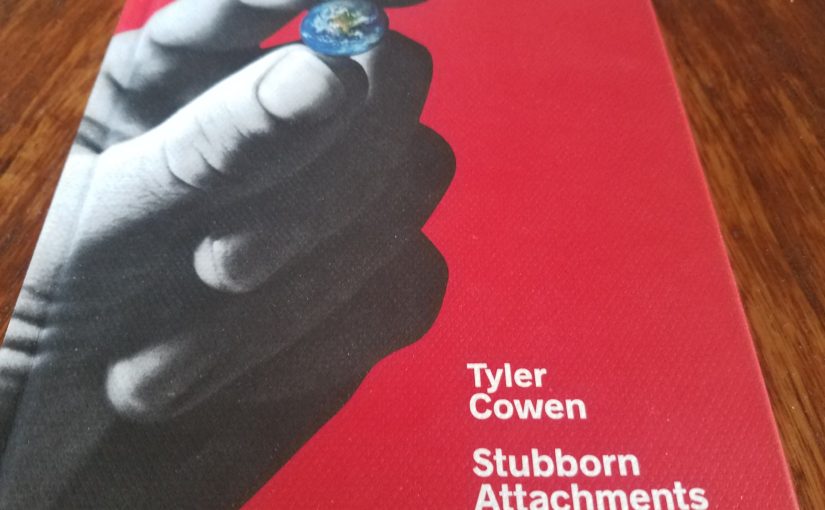I’m continuously impressed, inspired and — more than anything – enlightened by the great economist Tyler Cowen.
The latest example is his excellent book, Stubborn Attachments: A Vision for a Society of Free, Prosperous, and Responsible Individuals.
You can read the preface and get more context here.
Below are some of my notes and favorite sections. Do yourself and your future self a favor and read this book cover to cover.
“…Three key question should be elevated in their political and philosophical importance, namely:
- What can we do to boost the rate of economic growth?
- What can we do to make our civilization more stable?
- How should we deal with environmental problems?
“…Politics should be about finding the best means to achieve these ends, rather than disputing the importance of these ends.”
“Not everyone can be happy about everything all of the time, but we should nonetheless choose the option that makes a strong preponderance of people much better off. Most important plural values will come along for the ride.”
AF: It’s probably a stretch, and I’m biased, but I see a connection between this modified-consequentialist mentality (above) and the path forward for the Israeli-Palestinian conflict. What option makes the most people better off and best positioned for long-term economic growth? It’s still messy, and relies on the assumption that we can treat the region’s fraught history as sunk costs.
“Most of us should work hard, be creative, be loyal to our civilization, build healthy institutions, save for the future, contribute to an atmosphere of social trust, be critical when necessary, and love our families. Our strongest obligations are to contribute to sustainable economic growth and to support the general spread of civilization, rather than engage in massive charitable redistribution in the narrower sense. In the longer run, greater economic growth and a more stable civilization will help the poor most of all…we should redistribute wealth only up to the point that it maximizes the rate of sustainable economic growth.”
AF: I think it’s useful to think about a Universal Basic Income (UBI) through this lens of optimizing redistribution and the social safety net — it could be like Welfare 2.0, designed with incentives for long-term economic growth and independence. Update: Read my notes on UBI here.
“There nonetheless remains a good case to be made for some degree of redistribution. For instance, a well-constructed welfare state can distribute education and nutrition more widely. The individuals supported by this state are not only better off, but they are more likely to be productive and pay taxes, and they are less likely to overturn public order.”
AF: The above calls to mind Andrew Yang’s point (and I’m paraphrasing from what I remember of his excellent interview with Joe Rogan) that a UBI would pay people to stay out of prison. And since our prison system is so costly, this approach would probably end up costing us less. Pretty wild way to think about it.
AF: The following assessment of the pacifying way we convince ourselves to just do you, is classic Tyler Cowen, and probably my favorite section in the book.
“I would therefore like to be more suspicious of our little voice in favor of supreme short-run pragmatism. I wish to suggest that it is a vice, the thinking man’s equivalent of the savage’s short-run gratification. It is our latest adaptive mechanism for feeling good about ourselves, at the expense of letting Rome burn. I suggest that we should instead turn our political energies to thinking about the long-run fortunes of our civilization. That means focusing on the future of freedom, wealth, science, and healthy, well-functioning institutions governed by rules and rights.”
Update: I felt I listed out too many excerpts in the original post here, so I cut out most of them and instead trimmed it down to a few key sections with my comments. I’ll plan on taking a more limited excerpt approach to future books posts, primarily out of respect to the authors and to encourage people to read the whole book itself.
